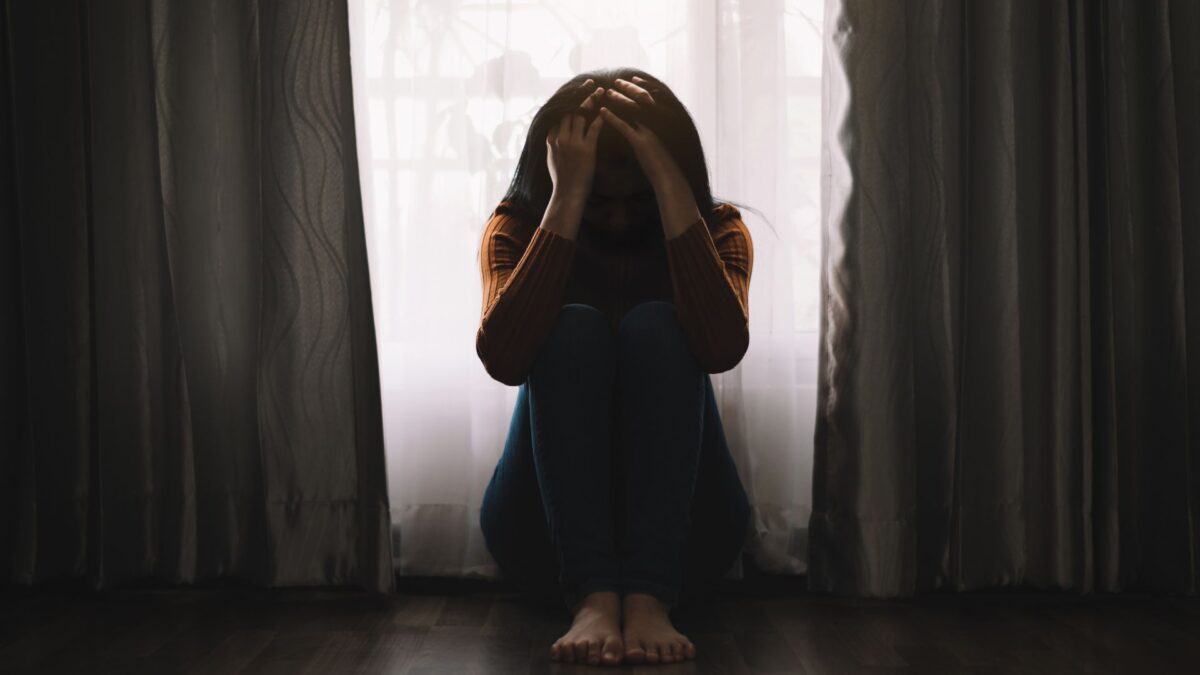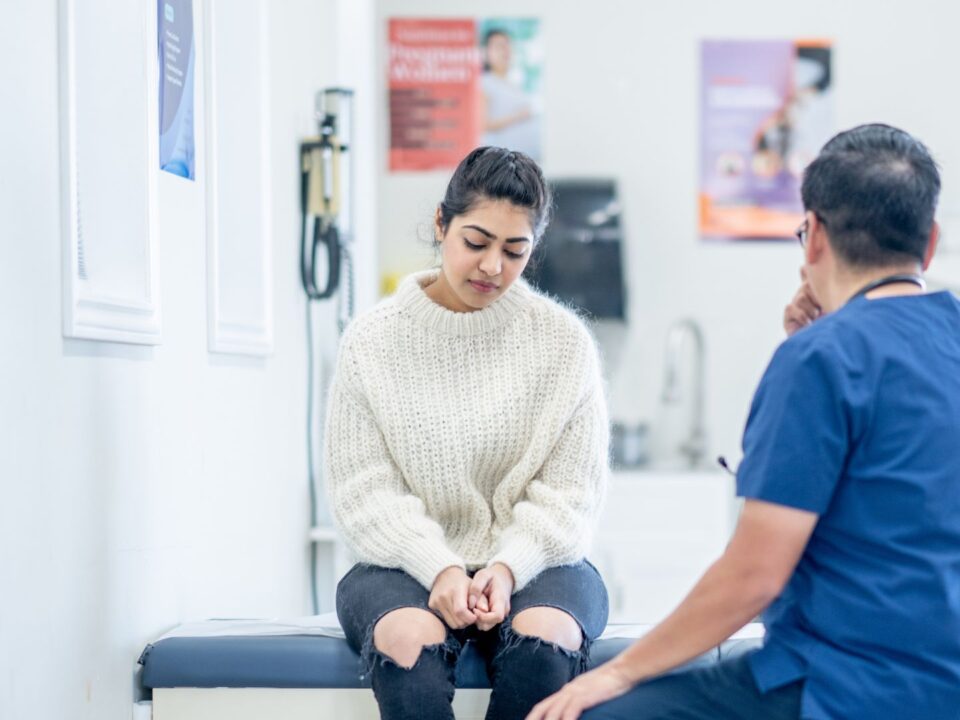
How to Prepare for an Indianapolis Inpatient Mental Health Stay?
January 14, 2025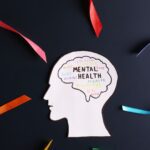
What Makes a High-Quality Mental Health Facilities in Indianapolis?
January 14, 2025Finding the right help for mental health issues can be tough. Many people are looking for effective treatments that fit their needs. Indianapolis offers a variety of options, including residential mental health treatment.
This kind of care provides support and therapy in a home-like setting. One top center in Indianapolis is the First City Mental Health Residential Treatment. It cares for young adults around the clock and takes all insurance plans.
We’ll look at therapies used, daily schedules, and how these programs help with different disorders.
Keep reading to learn more about improving mental wellness in Indianapolis.
Key Takeaways
- Residential mental health treatment in Indianapolis offers 24/7 care with therapies like TF-CBT, DBT, and EMDR for various psychiatric problems. Programs adapt the length of stay to individual needs.
- Treatment plans are personalized for each patient, focusing on overcoming trauma, improving emotional regulation, and developing coping mechanisms through family participation and skill workshops.
- Facilities handle dual diagnoses by combining mental health treatments with strategies for co-occurring disorders. Family involvement is key to supporting recovery.
- The daily routine in residential programs includes individual therapy, group sessions, skills development workshops, and recreational activities to support healing processes.
- Group therapy forms a critical component of treatment in Indianapolis residential programs by offering peer support under professional guidance multiple times weekly.
What Is Residential Mental Health Treatment, and How Does It Work in Indianapolis?
Residential mental health treatment in Indianapolis provides a well-organized setting for those grappling with a range of psychiatric problems. Establishments such as the Resource Residential Treatment Facility offer round-the-clock care, guaranteeing safety and thorough support for adolescents and young adults.
Patients can avail themselves of proven therapies like Trauma-Focused Cognitive Behavioral Therapy (TF-CBT), Dialectical Behavioral Therapy (DBT), and Eye Movement Desensitization and Reprocessing (EMDR).
These interventions take on profound psychological issues through immersive therapeutic sessions. The First City Mental Health Center also serves an important function by providing supportive housing inclusive of case management, individual therapy, and psychiatric services.
This combined strategy aids residents in reaching stabilization, particularly if existing treatment schemes are falling short.
Treatment length varies based on individual necessities, with brief alternatives lasting less than 90 days and extended care lasting up to two years. Such adaptability enables programs to effectively respond to each individual’s recovery journey, laying the groundwork for deep healing processes within the top mental health establishments in Indianapolis.
As we progress, being aware of the therapy types used is critical to understanding how these residential settings encourage improvement in mental health situations.
What Types of Therapy Are Used in Indianapolis Residential Mental Health Programs?
Understanding the workings of treatment for residential mental health facilities in Indianapolis requires us to familiarize ourselves with the types of therapies applied. These therapies play a significant role in successfully tackling various mental health issues.
- Trauma-Focused Cognitive Behavioral Therapy (TF-CBT): This therapy serves as a means to overcome trauma-related challenges. It proves particularly beneficial for individuals who have undergone traumatic incidents, allowing them to work through these experiences in a secure environment.
- Dialectical Behavioral Therapy (DBT): DBT puts an emphasis on imparting coping skills to manage stress, regulate emotions, and enrich relationships with others. It offers tangible benefits to those grappling with emotional disorders or borderline personality disorder.
- Eye Movement Desensitization and Reprocessing (EMDR): EMDR supports individuals in recovering from the symptoms of emotional trauma stemming from distressing experiences. Via rhythmic eye movements, patients can process and assimilate traumatic memories in a more constructive manner.
- Motivational Interviewing (MI): MI inspires individuals to tap into their motivation to alter certain behaviors that adversely affect their mental health. Therapists assist clients in recognizing their values and interests as stepping stones towards recovery.
- Personalized Treatment Plans: Each patient is given a distinctive treatment plan refined to their unique needs and life situations. This method guarantees that everyone obtains the most suitable and successful treatment strategies for their condition.
- Family Participation: A lot of programs accentuate the importance of including family members in the healing process. Such involvement can augment the support network for the individual and boost comprehension of mental health conditions amongst family members.
- Provision of Coping Mechanisms: The main objective of these therapies extends beyond symptom stabilization to also providing patients with coping mechanisms needed for daily challenges post-treatment, fostering lasting wellness.
These therapeutic techniques underlie the success of treatment in many of Indianapolis’s top residential mental health institutions, offering a beacon of hope and aid to those needing help for their mental health issues.
How Do Residential Mental Health Facilities in Indianapolis Address Individual Needs?
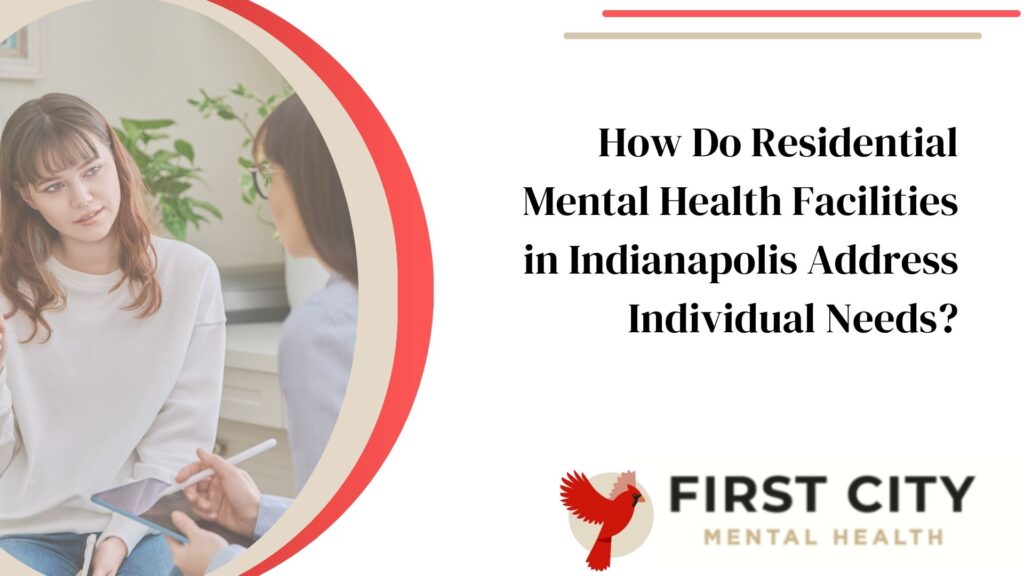
Residential mental health treatment facilities in Indianapolis personalize treatment programs to fit each individual’s unique needs. They focus on youth with emotional, behavioral, and psychiatric issues.
These centers use evidence-based therapies such as Trauma-Focused Cognitive Behavioral Therapy (TF-CBT) and Dialectical Behavioral Therapy (DBT). Family involvement plays a crucial role in creating effective treatment plans that improve support and outcomes.
Facilities provide 24/7 therapeutic support. This ensures continuous care within a safe environment. Supportive services like case management and skill training enhance individual recovery paths.
Programs for adults also address various mental health disorders alongside addiction issues, ensuring personalized care for all patients.
“Individualization makes the difference in effective mental health treatment.”
What Is the Typical Daily Schedule for Residential Mental Health Treatment in Indianapolis?
Understanding a typical daily schedule for residential mental health treatment in Indianapolis reveals how structured care supports recovery. These programs offer patients a routine filled with therapeutic activities.
- Morning Routine: Residents start their day early. They may participate in morning mindfulness exercises, which help set a positive tone for the day ahead.
- Breakfast: After morning routines, individuals enjoy a healthy breakfast together. This fosters community and builds connections among residents.
- Individual Therapy Sessions: Patients engage in personalized therapy sessions focusing on their unique needs. Therapists might use approaches like Trauma-Focused Cognitive Behavioral Therapy (TF-CBT) or Eye Movement Desensitization and Reprocessing (EMDR).
- Group Therapy: Group sessions follow individual therapy. These discussions promote shared experiences and support within the group setting.
- Skills Development Workshops: Participants attend workshops aimed at developing coping skills and life skills vital for everyday situations.
- Lunch Break: Lunch provides another chance for residents to bond over meals while discussing topics relevant to their treatment journey.
- Recreational Activities: In the afternoon, patients take part in recreational activities such as sports, art, or music therapy, helping them express emotions creatively.
- Family Involvement Sessions: Facilities often include family involvement in treatment planning, allowing loved ones to participate in specific sessions that enhance support networks.
- Evening Reflection and Journaling: Towards the end of the day, residents may reflect on their progress through journaling or group discussions facilitated by therapists.
- Dinner and Wind Down: Dinner serves both nourishment and socialization before winding down with calming activities like yoga or meditation to end the day peacefully.
- Bedtime Routine: As night falls, residents follow a consistent bedtime routine that encourages restfulness and prepares them for another day of recovery-focused activities.
These structured schedules benefit those pursuing effective mental health treatment in Indianapolis, ensuring each day contributes positively to their healing journey at some of the best mental health facilities in Indianapolis.
How Are Group Therapy Sessions Structured in Indianapolis Residential Programs?
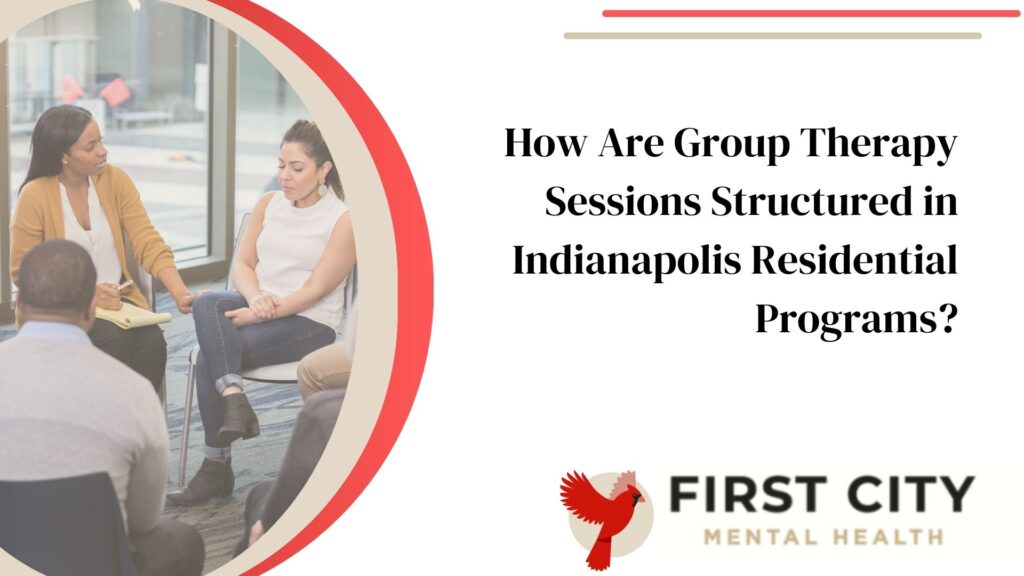
Group therapy sessions in Indianapolis residential mental health programs play a vital role in recovery. Licensed therapists lead these sessions, using evidence-based therapeutic interventions.
Participants focus on skill development, emotional expression, and peer support. Group sessions often include family involvement to strengthen the support network for individuals.
Typically, group therapy occurs multiple times each week. Each session varies in length but aims to promote symptom stabilization and improved coping strategies. Through sharing experiences with peers, participants work toward successful community reintegration.
The structure of these therapy sessions fosters a supportive environment that encourages open dialogue among attendees and enhances their healing journey with the best mental health facilities in Indianapolis.
Next, we will explore how Indianapolis residential facilities manage dual diagnosis cases.
How Do Indianapolis Residential Facilities Handle Dual Diagnosis Cases?
Indianapolis residential mental health facilities effectively manage dual diagnosis cases by focusing on individualized treatment plans. These plans address both mental health issues and co-occurring disorders, ensuring that each patient’s unique needs receive attention.
Facilities like First City Mental Health Center utilize evidence-based interventions such as Dialectical Behavior Therapy (DBT) and Motivational Interviewing (MI).
Family involvement plays a crucial role in these programs. It enhances support systems for individuals during their recovery journey. Centers work diligently to stabilize symptoms while equipping patients with tools for long-term recovery.
This comprehensive approach prepares individuals to face life’s challenges more confidently. The next section will explore how residential programs in Indianapolis address severe depression.
How Do Residential Programs in Indianapolis Address Severe Depression?
Residential programs in mental health Indianapolis offer focused care for individuals struggling with severe depression. The residential treatment facility specializes in psychiatric care for adolescents and young adults facing this challenge.
They utilize evidence-based therapies such as Trauma-Focused Cognitive Behavioral Therapy (TF-CBT) and Dialectical Behavioral Therapy (DBT). These treatments help clients process their emotions and develop effective coping strategies.
Individualized treatment plans play a crucial role at these mental health facilities in Indianapolis. Family involvement enhances support, which is vital for recovery. Facilities like the FCMHC provide 24/7 support, ensuring that patients receive continuous assistance during their journey toward healing.
Programs aim to equip individuals with the tools needed for successful community reintegration after treatment, establishing a foundation for long-term mental health maintenance.
How Do Indianapolis Residential Facilities Address Anxiety Disorders?
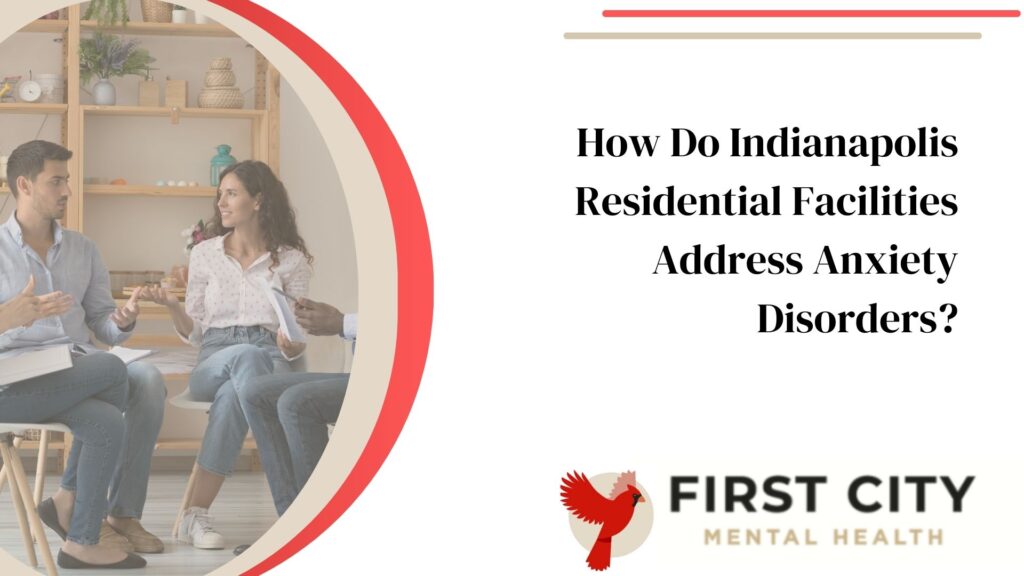
Indianapolis mental health residential facilities focus on treating anxiety disorders with evidence-based therapies. These programs use Trauma-Focused Cognitive Behavioral Therapy (TF-CBT) and Dialectical Behavioral Therapy (DBT).
Both approaches help manage anxiety symptoms effectively. Staff create individualized treatment plans to meet each youth’s unique needs.
Family involvement plays a crucial role in the recovery process. Facilities emphasize strengthening support systems for those dealing with anxiety. The FCMHC provides specialized programs for adults facing similar challenges, offering intensive therapy and counseling.
Testimonials from former residents highlight successful outcomes after treatment, showcasing improved coping mechanisms and overall well-being.
Conclusion
Residential mental health therapist in Indianapolis offers valuable support for those in need. Key programs focus on individual care through effective therapies like DBT, TF-CBT, and EMDR.
Facilities prioritize family involvement to enhance recovery efforts. Many resources help individuals find appropriate treatment options specific to their needs. Taking action can lead to remarkable improvements in mental well-being and community reintegration.
FAQs
What is residential mental health treatment in Indianapolis?
Residential mental health treatment in Indianapolis refers to a comprehensive program where individuals with mental health conditions stay at specialized facilities for continuous therapy and support.
How does this type of mental health treatment work?
The process typically begins with an assessment by a qualified mental health therapist in Indianapolis, who determines the best course of action for the patient’s specific needs. The individual then resides within the facility, receiving round-the-clock care from trained professionals.
What services do these residential mental health facilities in Indianapolis offer?
These facilities provide various services including counseling, medication management, group therapy sessions, and other therapeutic activities designed to improve patients’ overall well-being and facilitate recovery.
Why might someone choose residential treatment over outpatient options for their mental health issues?
While outpatient care can be effective, some people need more intensive help that only a residential setting can provide. This allows them to focus entirely on healing without distractions or triggers from their everyday environment.


